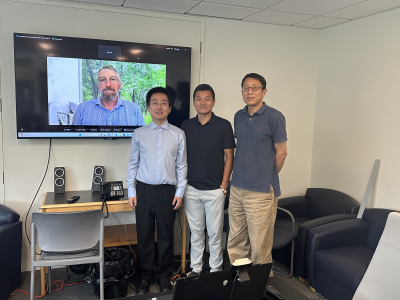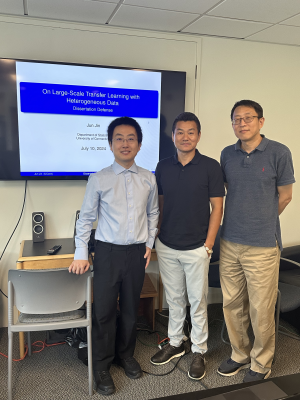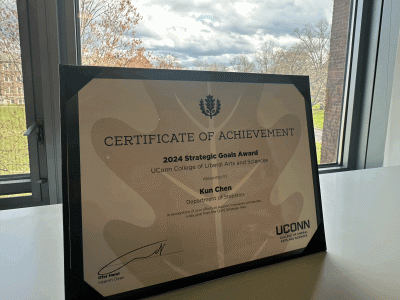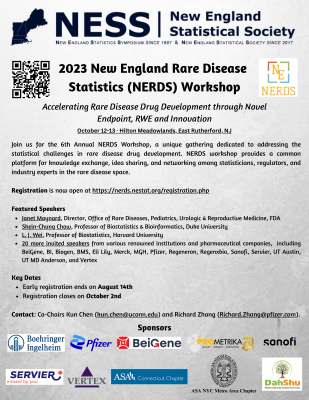On December 6, 2024, Ph.D. student Jiadong Fang successfully defended his thesis entitled “Quantile and Expectile Regression with Rare Feature Aggregation.” Jiadong was co-advised by Dr. Kun Chen and Dr. Yuwen Gu, and his committee also included Dr. HaiYing Wang. Thank you all for your support!
After graduation, Jiadong will join Abbvie as a statistician.
Congratulations, Dr. Fang!






